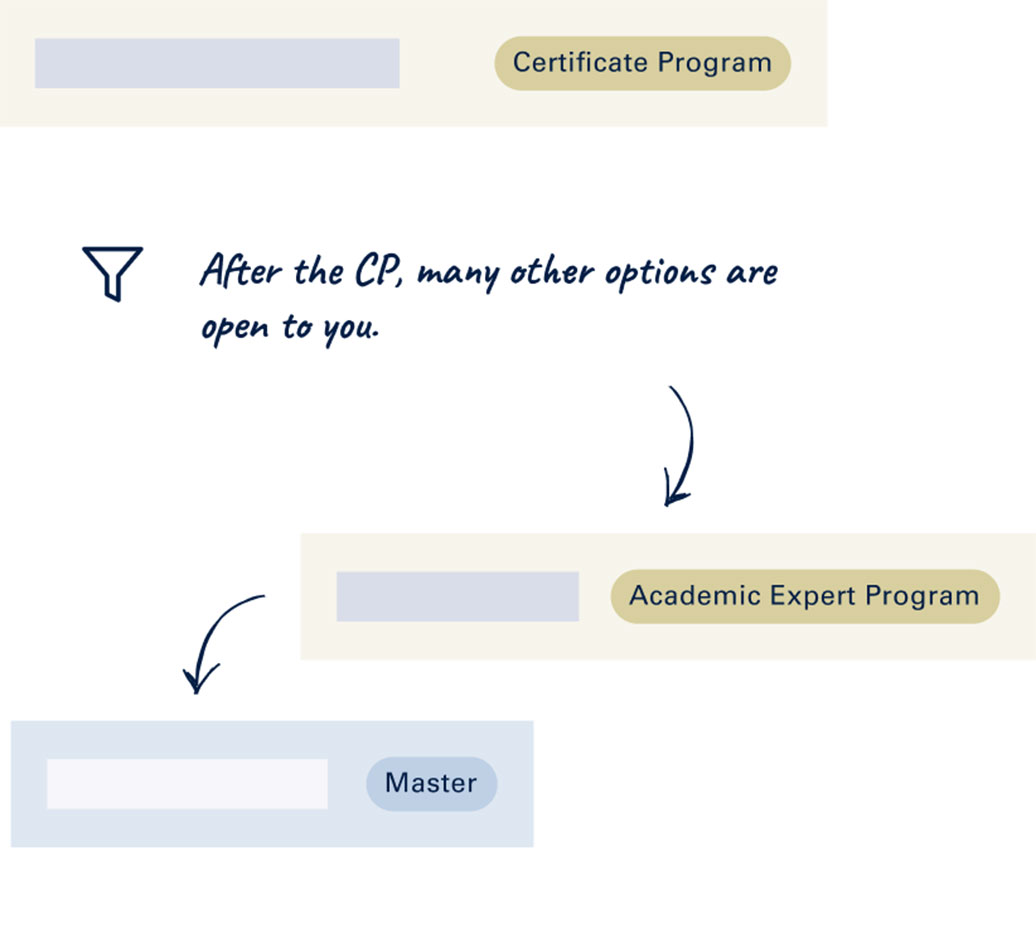-
Graduation
Academic Expert
-
ECTS-Points
60
-
Learning format
-
-
Start
continuously possible
-
-
Admission requirements
According to curriculum
-
Language
German or English
-
Curriculum


Danube Business School (DBS) strives to be a European leader in the field of executive education and sets the standards for relevant management programs tailored to individual learning needs with its state-of-the-art curricula.
Univ.-Prof. Dr.
Barbara Brenner
Dean of the Faculty of Business and Globalisation
Any questions?
We’re here to help.
Inquirires about blended learning

Nina Staffenberger
Administrative assistant
Inquirires about distance learning (only available in German)

Sabine Niemannsgenuss
Administrative assistant
Or use our contact form:
Benefit from our study program
- Students work on scientifically sound issues of practical relevance.
- This program concludes with the "Academic General Manager" certificate.
-
for working professionals
-
practice-oriented
-
university certificate
Accreditation
ACCREDITED: The Danube Business School is a member of the United Nations PRME Initiative.

Learning Format
Blended learning option
To meet the demands of students who study alongside their work, courses at Danube Business School are offered as blended learning courses. Blended Learning combines self-study with e-learning and on campus training modules according to the training objectives of each degree course.
- Networking
- personal support
- Get in touch with top-class lecturers
Continuing education tuition fee: EUR 14.900,--
The blended learning option can be studied in German or English language.
Distance learning option
Study anywhere and at any time? Since 2017, we have also been offering the General Management programs in the distance learning version. Here, all subjects can be completed 100% online within a year or at your own pace. It is possible to start all year round. This means that the course can be adapted to suit individual circumstances, such as professional and private commitments or stays abroad.
- flexible in terms of location and time
- Good balance between work and family life
Continuing education tuition fee: EUR 8.900,--
The distance learning option can be studied in German language only.
Duration
The Academic Expert Program „General Management“ can also be studied full-time in 2 semesters.
Stackable Program
In combination with other continuing education programs, Stackable Programs can be combined to achieve an academic degree.


The Stackable Program offers me complete flexibility in the design of my studies.
Tatjana Kohl
Student
Curriculum
The modules of this General Management Core Curriculum can be completed in blocks. The compulsory modules last 2 days each and are each offered with another module in blocks of 4 days.
A final thesis is to be written at the end of the course. With the final paper, students should demonstrate that they are able to discuss knowledge acquired within the framework of an independent paper and to reflect on it with regard to a practical application.
Structure after the General Management College course:
After another 6 core subjects, as well as submission and positive grading of a project work, you will be awarded the "Academic General Manager".
Core Subjects - General Management (AE)
Study Program Director
German Program
Downloads
Here you can find more information about the Academic Expert Program.
Application
Admission requirements
- General university entrance qualification and 2 years of qualified professional experience or
- without university entrance qualification 5 years of qualified professional experience
Application process
- Contact us to clarify your expectations of the study program and to check the admission requirements
- Online application (Prepare the required document for uploading in the online tool. The document "Learning agreement" can be found in the downloads section of this page. You can download further templates on the "Application" info page. Please also note the study code UM 992 593 for selection in the online tool.)
- Carrying out the selection procedure (interview with the director of studies)
- Admission to the degree program
We look forward to receiving your application and to welcoming you soon at the University for Continuing Education Krems.
Related programs
Tags

